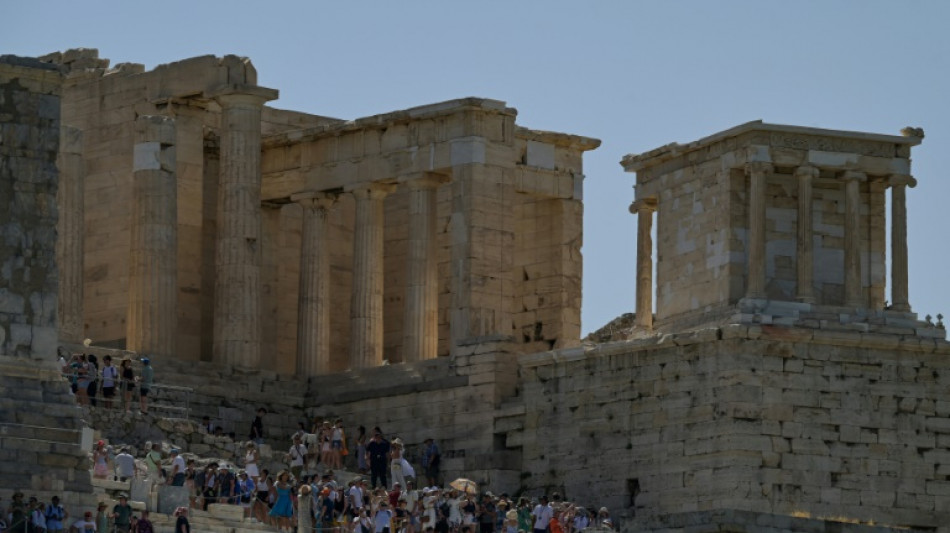

Earliest-ever Greek heatwave shuts Acropolis for second day
The Athens Acropolis, Greece's most visited tourist attraction, was closed to the public during the hottest hours on Thursday for the second day running, as the country's earliest-ever heatwave neared its peak.
Tourists were unable to visit the Parthenon and other ancient masterpieces atop the UNESCO-listed archaeological site between noon and 5:00 pm local time (0900 to 1400 GMT).
Meteorologists have noted it is the earliest heatwave -- which for Greece is temperatures exceeding 38 degrees Celsius (100 degrees Fahrenheit) for at least three days -- on record.
Temperatures of up to 44 degrees Celsius were expected on Thursday, with up to 43 degrees forecast in the capital, prompting health warnings and school closures.
By midday, however, the mercury was still at 37 degrees Celsius in Athens, according to the Poseidon System website.
Several other Greek archaeological sites in Crete, the Dodecanese, the Cyclades and the Peloponnese were also shut as a precaution against the heat.
Other world-renowned attractions, such as Delphi, Olympia and Knossos, remained open without interruption.
The heatwave prompted the climate crisis and civil protection ministry to issue a "very high" wildfire risk for eight Greek regions on Wednesday.
Temperatures are expected to ease from Friday onwards.
The Acropolis was forced to close in July last year during a two-week heatwave that was unprecedented in its duration.
It was followed by fires that, according to the National Observatory of Athens, consumed nearly 175,000 hectares (432,000 acres) of forest and farmland.
A record number of almost four million visitors flocked to the Acropolis in 2023, with its popularity boosted in part due to tourists arriving on cruise ships calling in at the nearby port of Piraeus.
Y.Urquhart--NG



